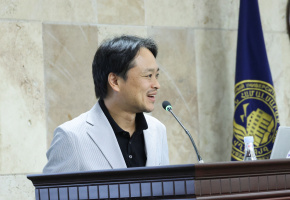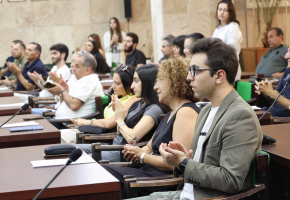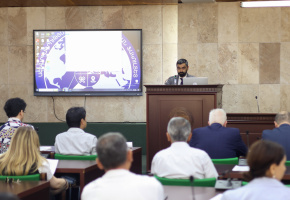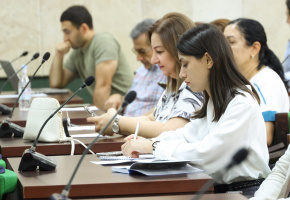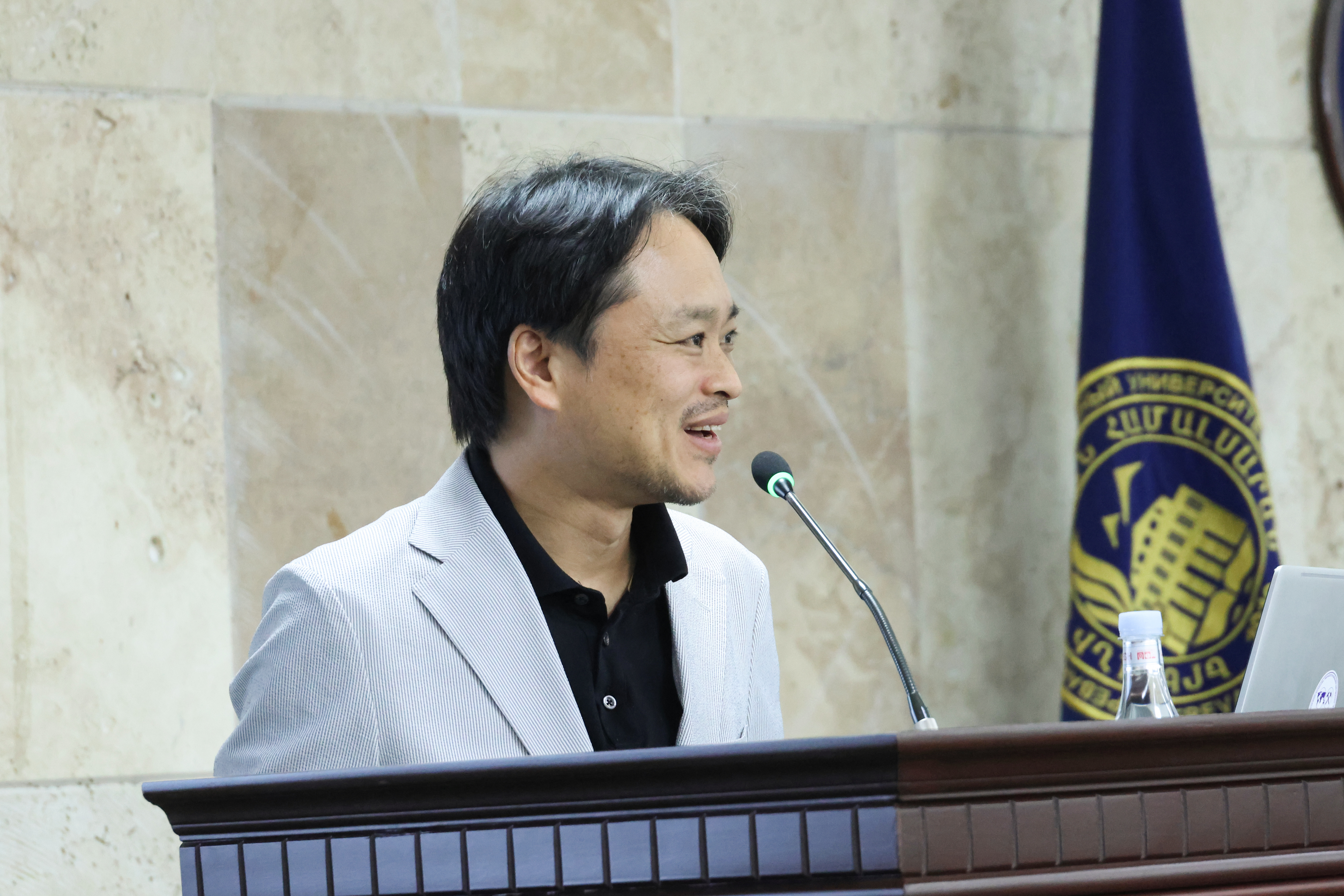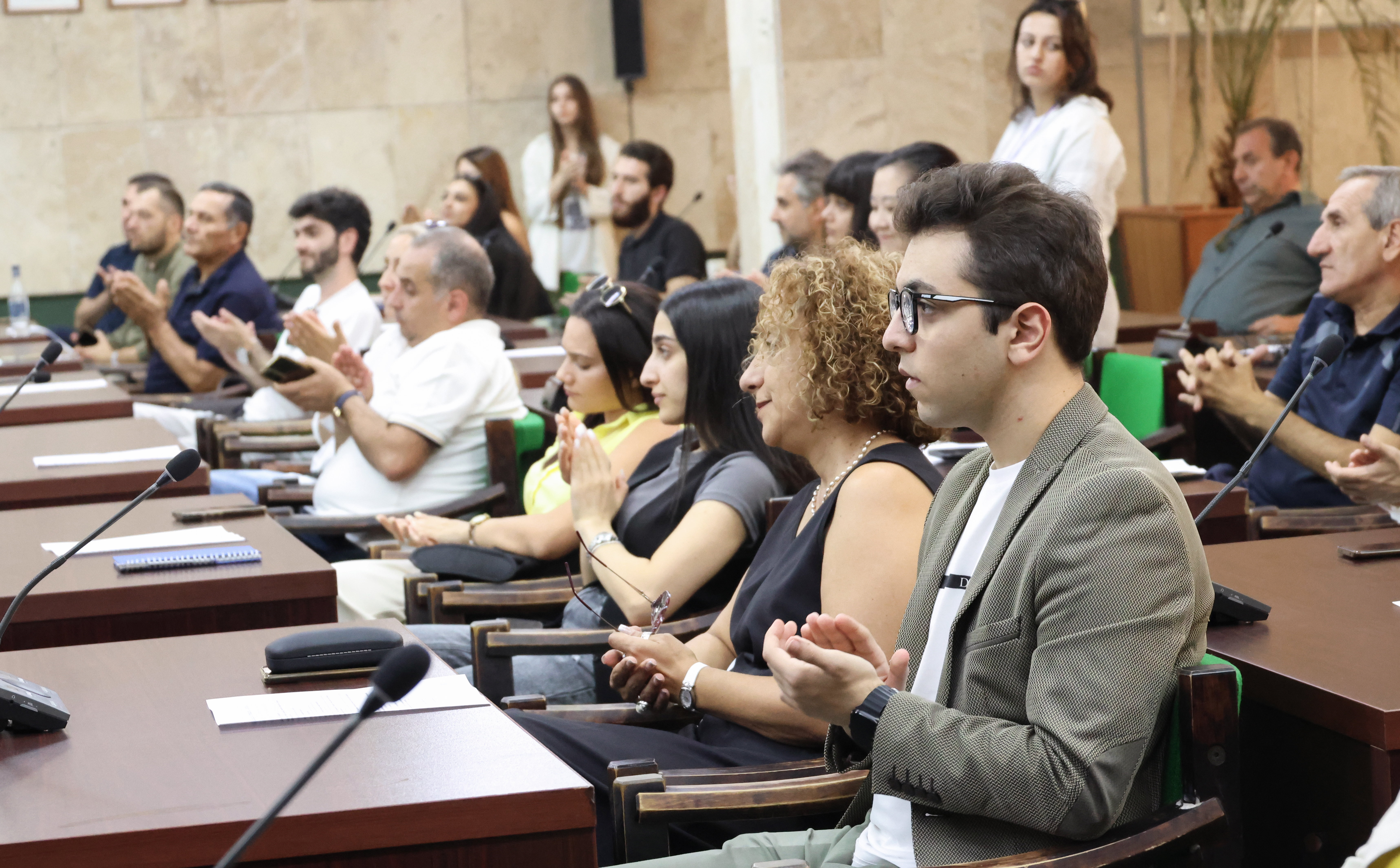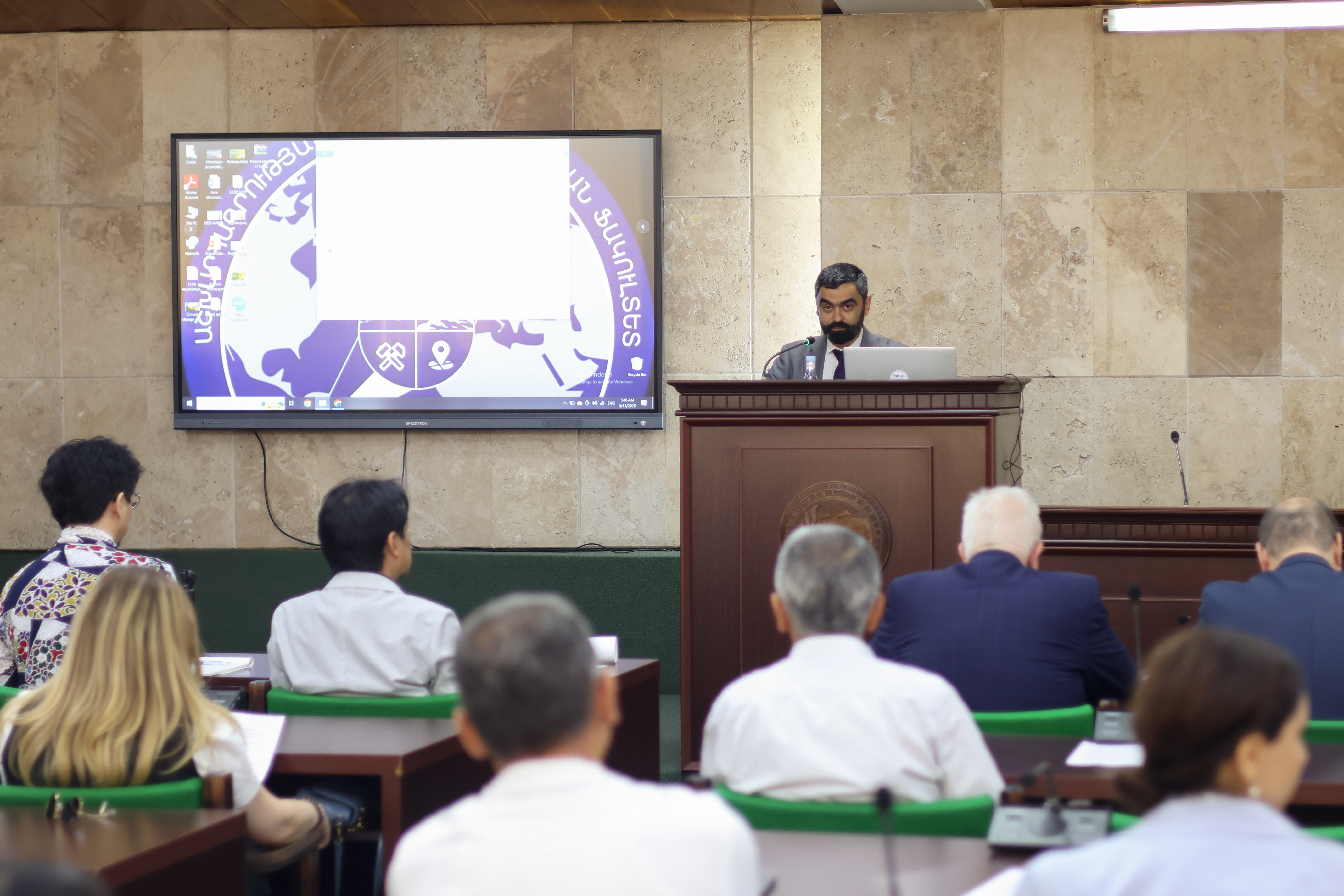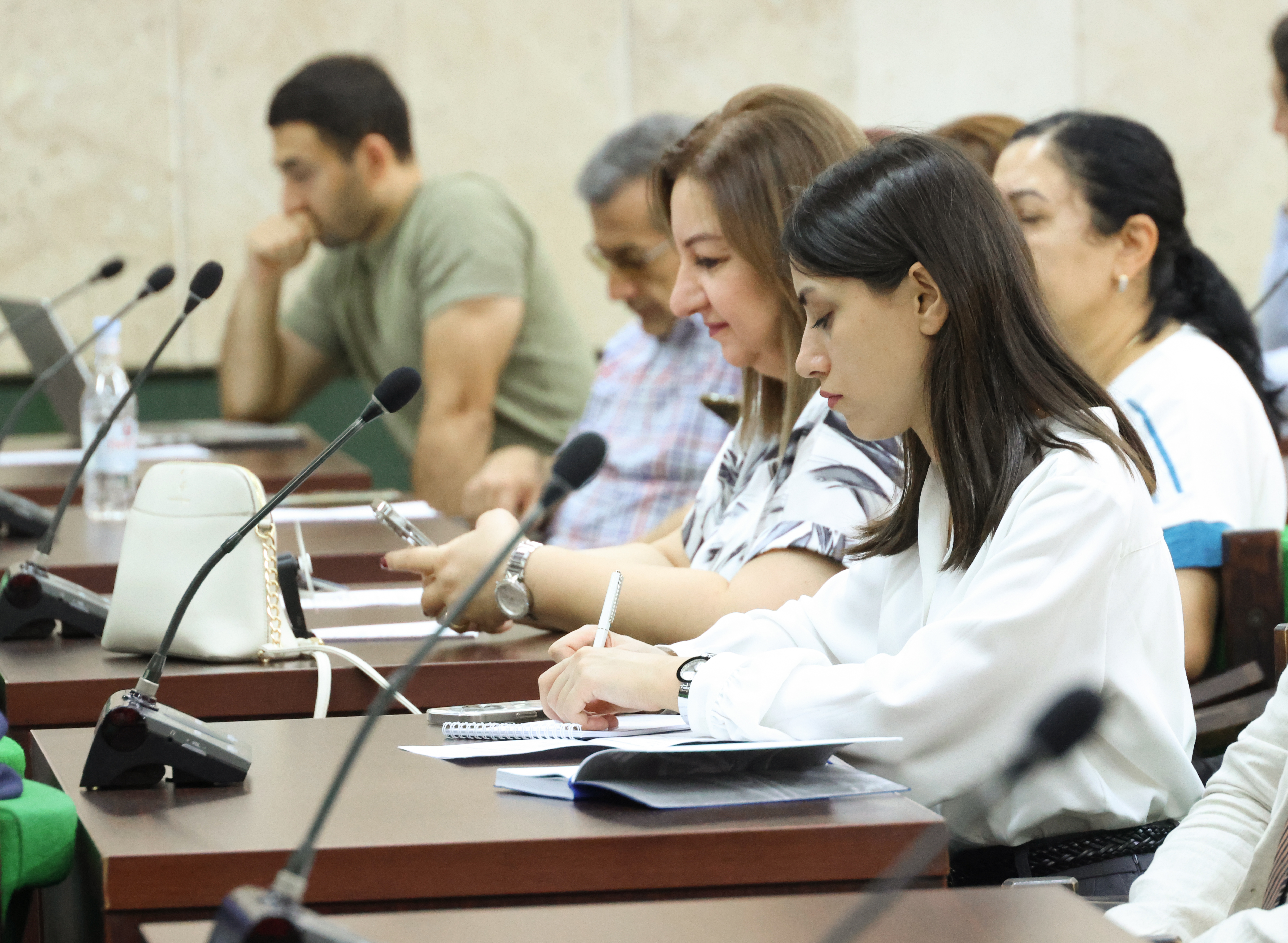September 11, 2025 | 16:58
Research centers and institutes
International cooperation
Events
Armenia and Japan launch collaborative project: Center for Spatial Studies and Urban Informatics
Today, the official launch of the Armenian-Japanese project "Center for Spatial Studies and Urban Informatics" was announced at Yerevan State University. This project, authored by Artak Piloyan, Acting Head of the Chair of Cartography and Geomorphology and Assistant Professor at YSU Faculty of Geography and Geology, along with his colleagues, received funding support through the "Establishment of Remote Laboratories – 2025" competition initiated by the Higher Education and Science Committee of the Ministry of Education, Science, Culture and Sports.
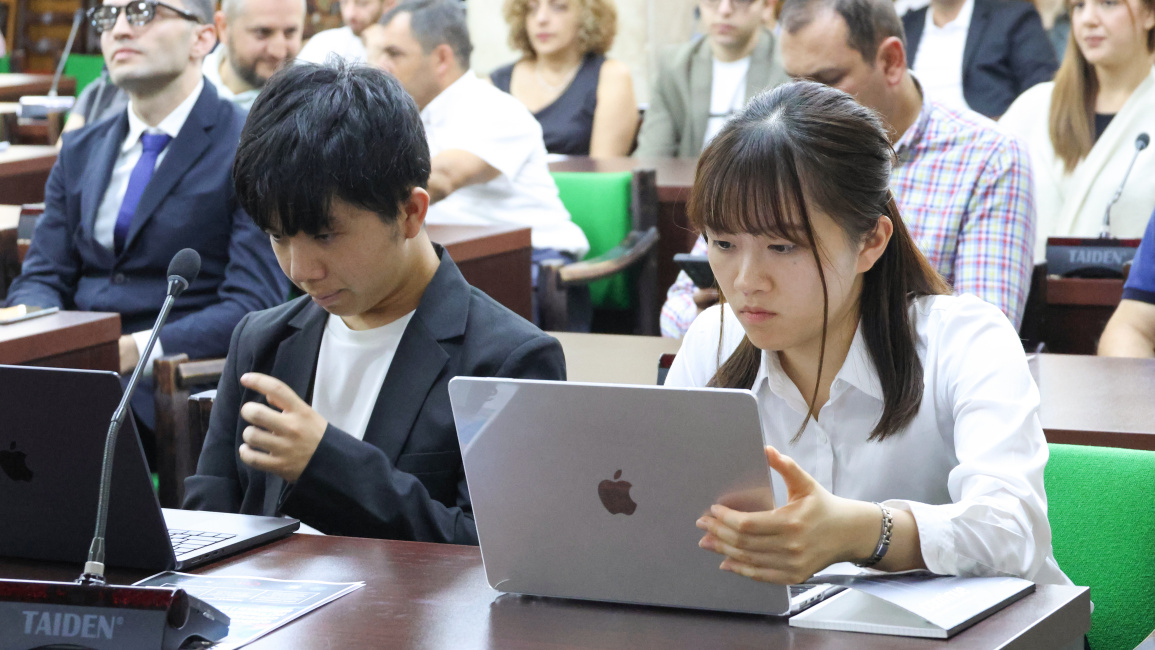
Within the framework of this project, experts from the Faculty of Geography and Geology will collaborate with researchers from the University of Tokyo (Japan) to conduct a range of applied and scientific studies. These will focus on the digitalization of Yerevan, sustainable development of the urban environment, seismic resilience assessment, and the interaction between people and the urban setting.
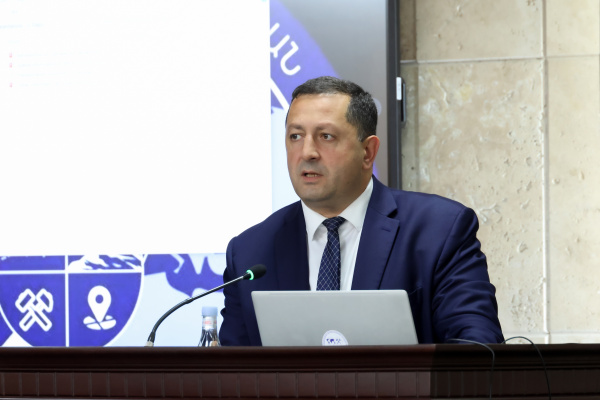
YSU Rector Hovhannes Hovhannisyan emphasized that the establishment of the center aims to modernize Armenia’s scientific and educational system. He noted that spatial studies and urban informatics lie at the intersection of science, technology, and society, offering tools to better understand how cities function, the dynamics between people and their environments, and enabling the development of more human-centered communities.
The rector highlighted that this initiative is the result of the dedication of YSU’s scientific team: "It is inspiring to see that YSU researchers are the initiators of such a complex project. They did not back down from the challenges and have built a strong international partnership."
Hovhannes Hovhannisyan also underlined the importance of collaboration between YSU researchers and Professors Yoshihide Sekimoto and Kotaro Iizuka from the University of Tokyo, expressing confidence that the joint efforts will yield the expected results.
The rector is confident that the establishment of the center will create new opportunities for students, young scientists, and partners. It will also enhance interdisciplinary collaboration, strengthen the university's technological base, and ensure that Armenian science remains accessible and competitive on the international stage.
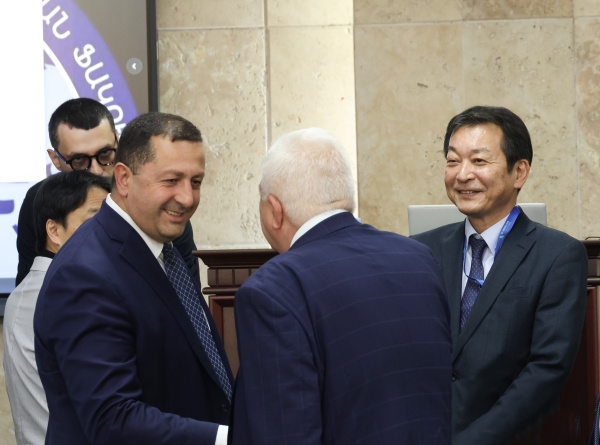
Japanese Ambassador to Armenia, Yutaka Aoki, noted that last week, Prime Minister Nikol Pashinyan visited Japan for the first time, during which a summit was held and bilateral agreements were reached to deepen cooperation between the two countries in various fields, including information technology and disaster prevention.
"Since I was appointed as Ambassador to Armenia a year and a half ago, I have made many friends among both Armenians and Japanese, who work together to strengthen our bilateral relations. I am convinced that the Center for Spatial Studies and Urban Informatics will develop advanced methodologies for seismic vulnerability assessment, thereby improving data-driven simulations and decision-making processes. I have high expectations that this center will open a new chapter in the history of Japan-Armenia cooperation," said the ambassador.
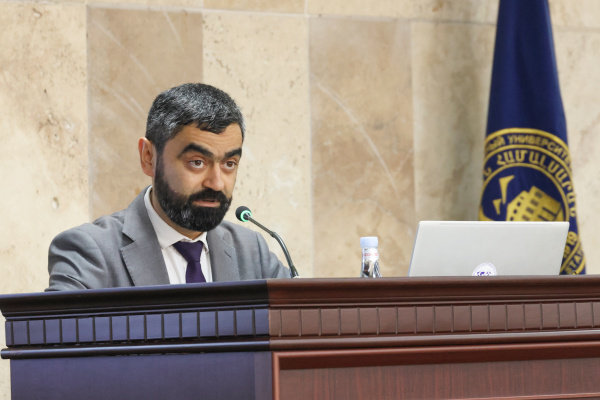
Sargis Hayotsyan, Head of the Higher Education and Science Committee of the MoESCS, stated that they are proud to support this groundbreaking project, as it contributes not only to the fields of science and education but also to Armenia’s resilience and long-term prosperity.
"This initiative is the result of the exemplary cooperation between Armenia and Japan. We are delighted to welcome such distinguished partners and are confident that this partnership will enrich both our countries and our scientific communities. The project actually reflects our vision of turning Armenia into a regional hub for innovation and knowledge by advancing seismic urban mobility studies, developing a digital twin of Yerevan, and promoting human-centered urban research. I am certain that this center will serve as a bridge of cooperation," he added.
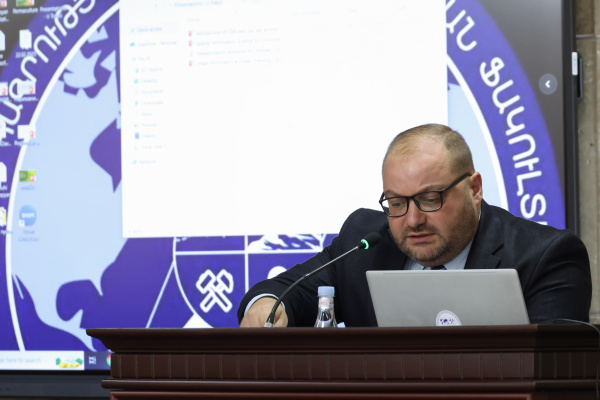
Artak Piloyan, Acting Head of the Chair of Cartography and Geomorphology and Project Lead, presented the center’s vision and operational directions. He emphasized their aim to promote urban informatics in Armenia, to develop urban science as a new field, to implement human-centered planning for sustainable development, to create AI-based models for managing seismic risks, and to support evidence-based urban governance.
During the event, Professor Yoshihide Sekimoto from the University of Tokyo, the International Project Coordinator, introduced the Human-Centered Urban Informatics Laboratory at the University of Tokyo’s CSIS Center. While Professor Kotaro Iizuka delivered a presentation on "Spatial Information Science for Disaster Risk Reduction."
Additionally, University of Tokyo researcher Artur Hovhannisyan presented on "Human Behavior Studies in Urban Environments and Indirect Participatory Planning through Urban Informatics," and students and PhD candidates from the University of Tokyo presented research reports on transportation solutions for Yerevan.
